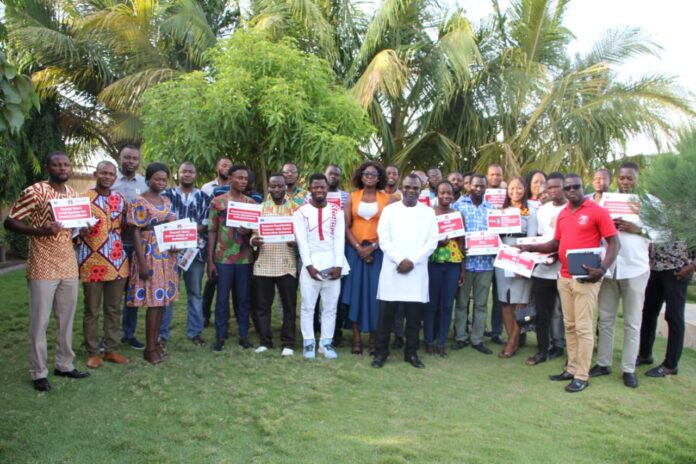ActionAid Ghana, through its Communication and Public Relations Manager, Esther Ohenewaa Brown, is proposing the establishment of a National Disaster Fund which targets farmers to help appropriately address issues of disaster and relief support to affected persons.
The proposal is a result of painstaking data gathering as part of lessons drawn from the implementation of the Northern Ghana Integrated Development Project implemented in Ghana’s north with support from the European Union.
The project which also assesses the quality of social protection schemes for smallholder women farmers and other vulnerable groups in Ghana in 15 districts and 300 communities largely targeting farmers shows that the general awareness level of farmers on many of the social protection schemes is low.
Social intentions that were looked at include Disability Fund, National Entrepreneurship and Innovation Program (NEIP), Youth Enterprises Fund, and Microfinance and Small Loans Centre (MASLOC).
Per the findings, the general awareness level of farmers of these social protection schemes is low in the study districts. Only 4% of farmers we’re aware of the disaster fund, 15% of NEIP, 18% of the Youth Enterprises Fund, 48% of MASLOC, and 58% of the Disability Fund.
The low level of awareness of the various interventions has been blamed on a lack of information.
It was also identified that 2% of farmers are benefiting from the National Pension Scheme.
Speaking to Journalists in Bolgatanga after a two-day engagement on decent work and social protection held between May 4 and 5, 2023, Miss Ohenewaa Brown proposed the establishment of a National Disaster Fund targeting farmers that can assist them beyond donating mattresses to farmers who lose their investment as a result of the disaster.
“We also observe that when it comes to farmers. When there is flooding. All the things that we do is to give them what? mattresses and some little food items. But that farmer might have even gone for a loan to come and farm. And so, the mattress from NADMO.
That little groceries don’t solve the holistic challenge that they face with flooding. Which is UM for those who live in flood-prone areas, so it is important for us to have a national disaster fund. So that even if you are calling for donors, external donors to make some donation into this fund so that if these farmers who are already vulnerable, who go and borrow money from banks, I mean for those who have access to finance, borrow the money, they can have something to go back to their farm.
And then plant again. But if you go and give them a mattress, if you go and give them a grocery, it doesn’t solve the problem. So how key advocacy around the research that recommendation is that led us? Develop put together a disaster Relief Fund for farmers so that these farmers can have a bit of relief when there’s such disasters occur,” she stated.




